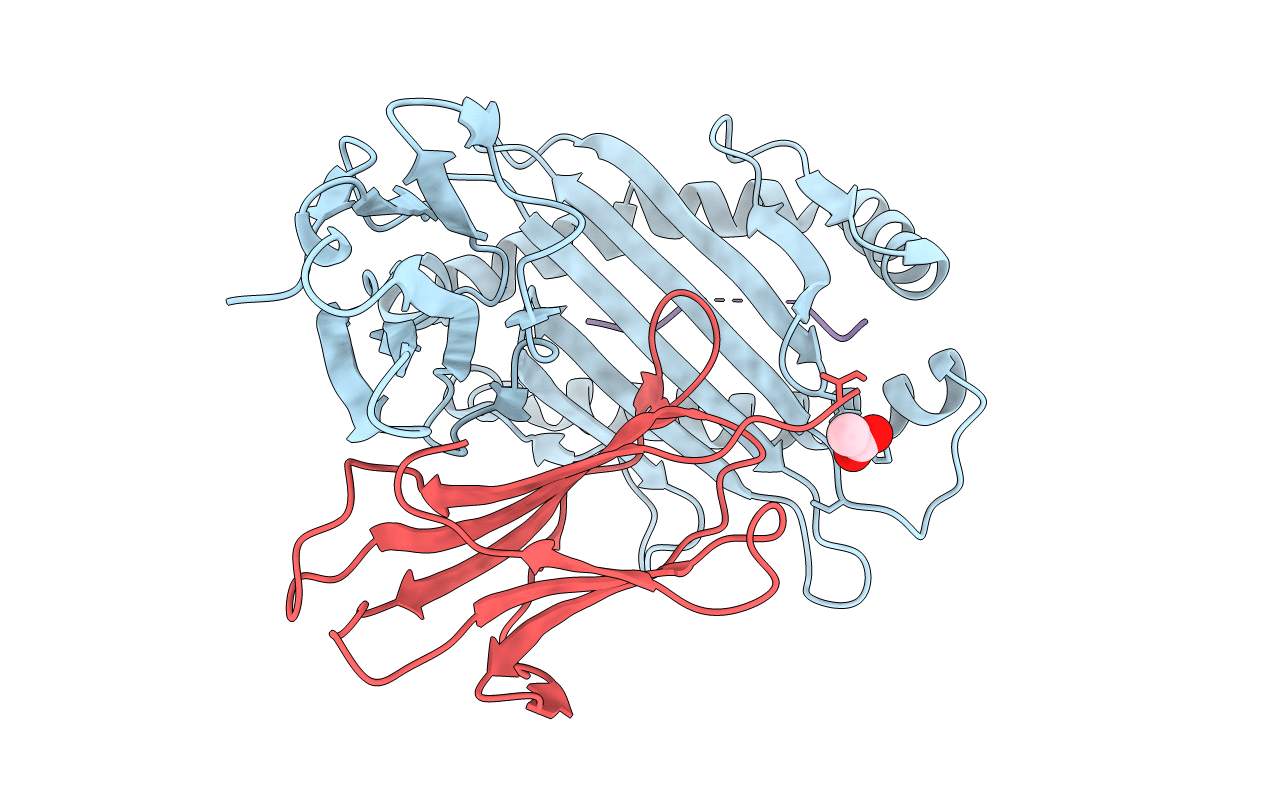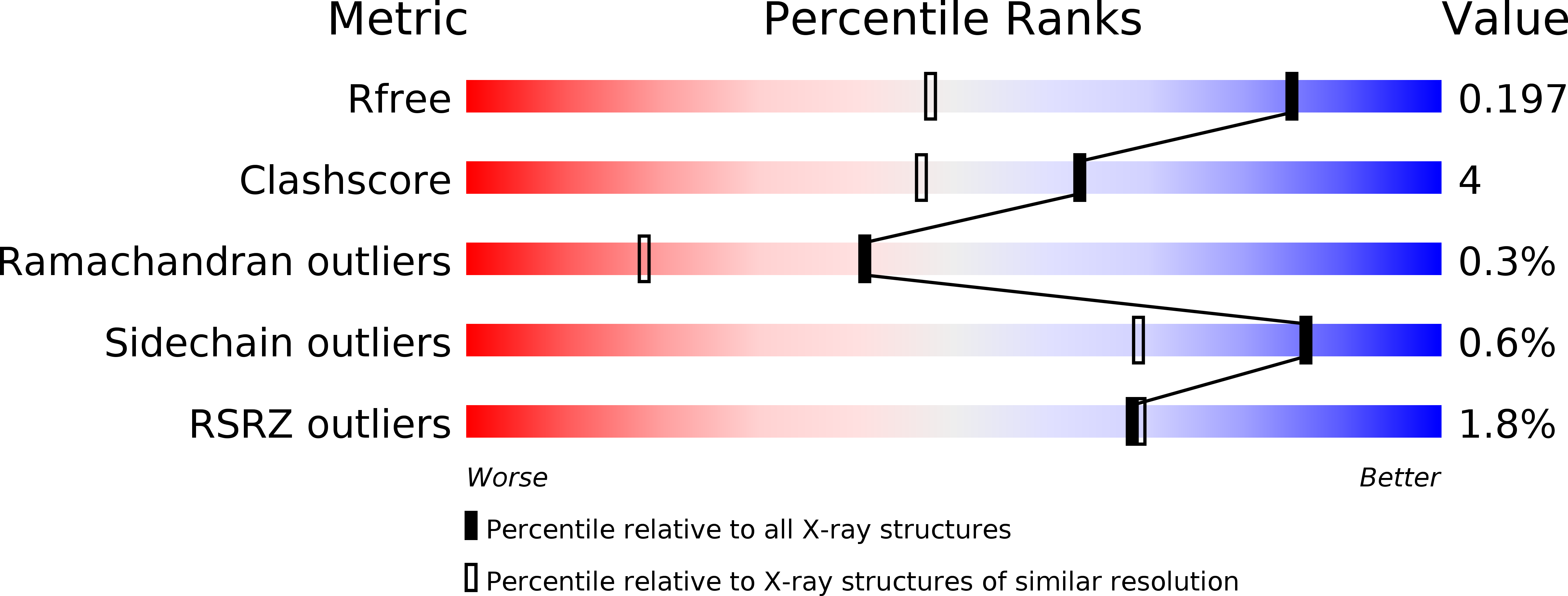
Deposition Date
2017-12-18
Release Date
2018-03-14
Last Version Date
2024-11-20
Entry Detail
PDB ID:
6BXP
Keywords:
Title:
Crystal Structure of HLA-B*57:01 with a modified HIV peptide RKV-Kyn
Biological Source:
Source Organism(s):
Homo sapiens (Taxon ID: 9606)
Human immunodeficiency virus 1 (Taxon ID: 11676)
Human immunodeficiency virus 1 (Taxon ID: 11676)
Expression System(s):
Method Details:
Experimental Method:
Resolution:
1.45 Å
R-Value Free:
0.19
R-Value Work:
0.16
R-Value Observed:
0.17
Space Group:
P 21 21 21


